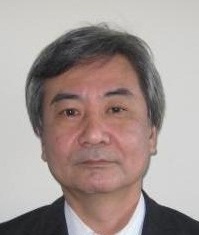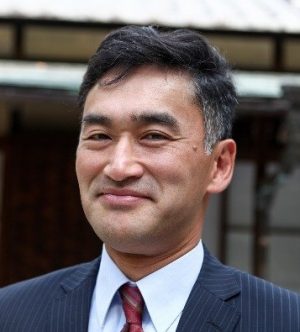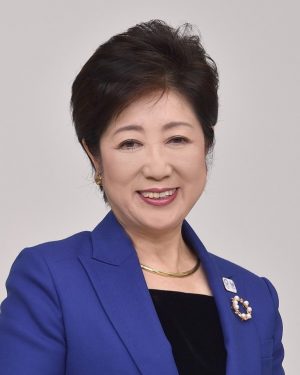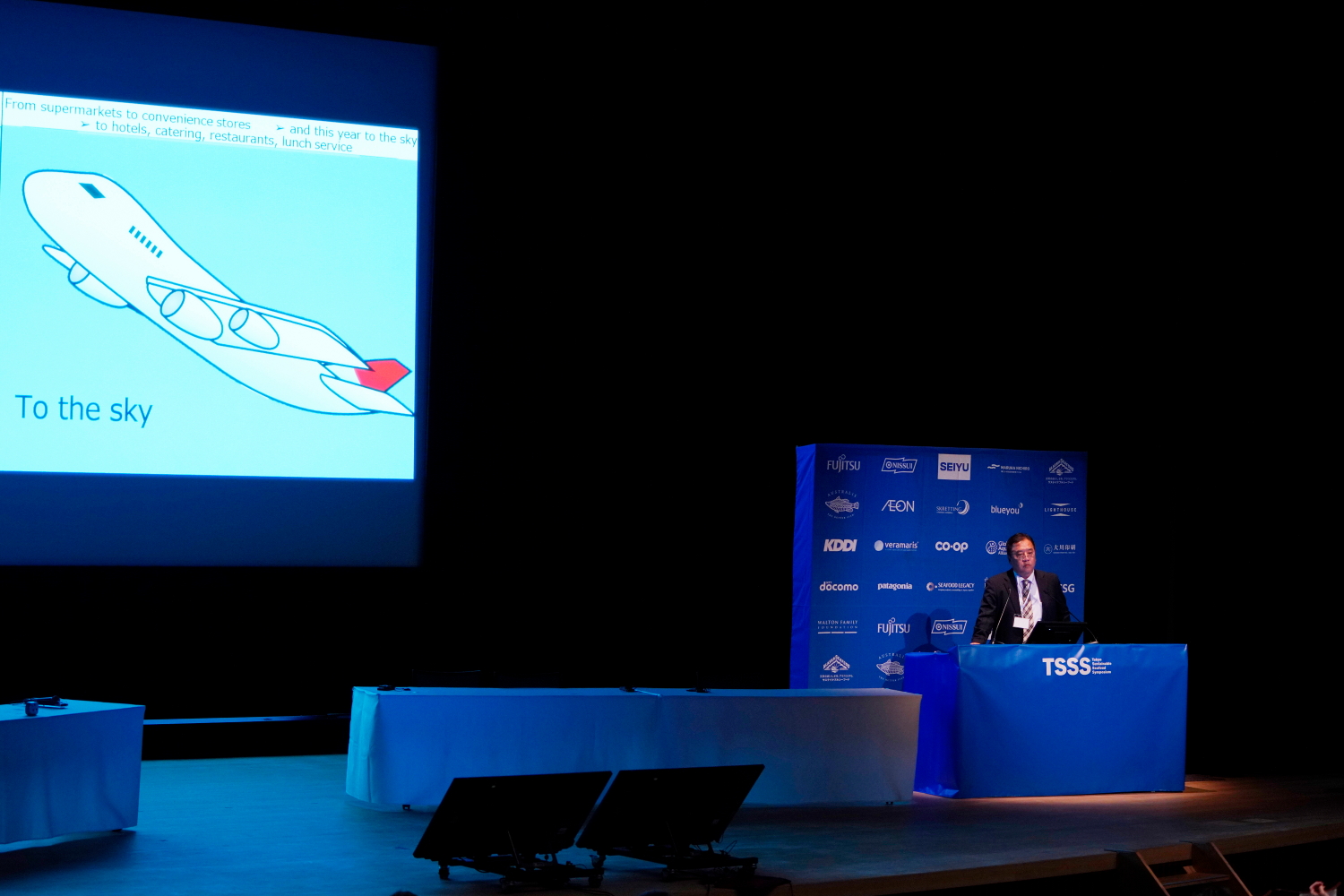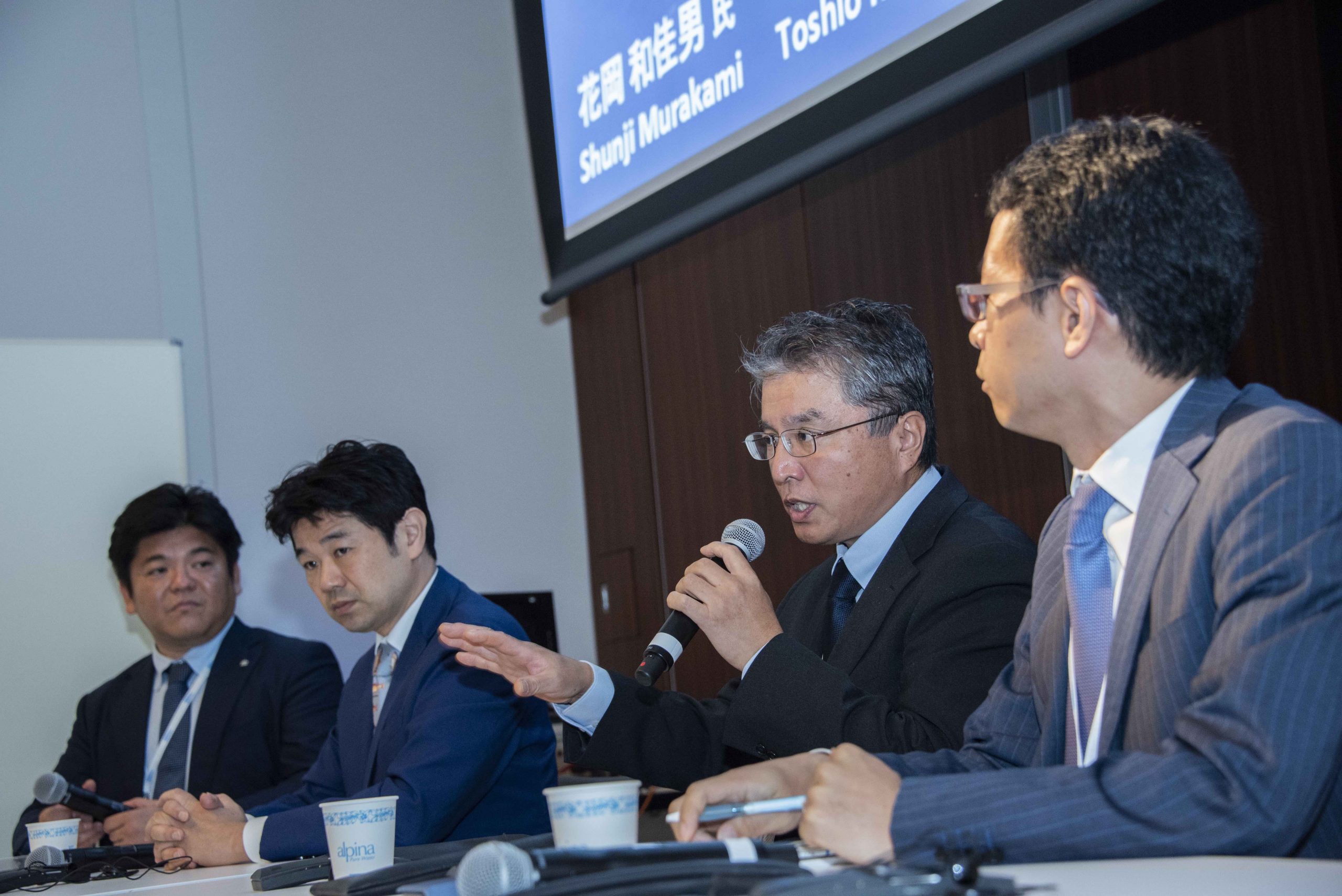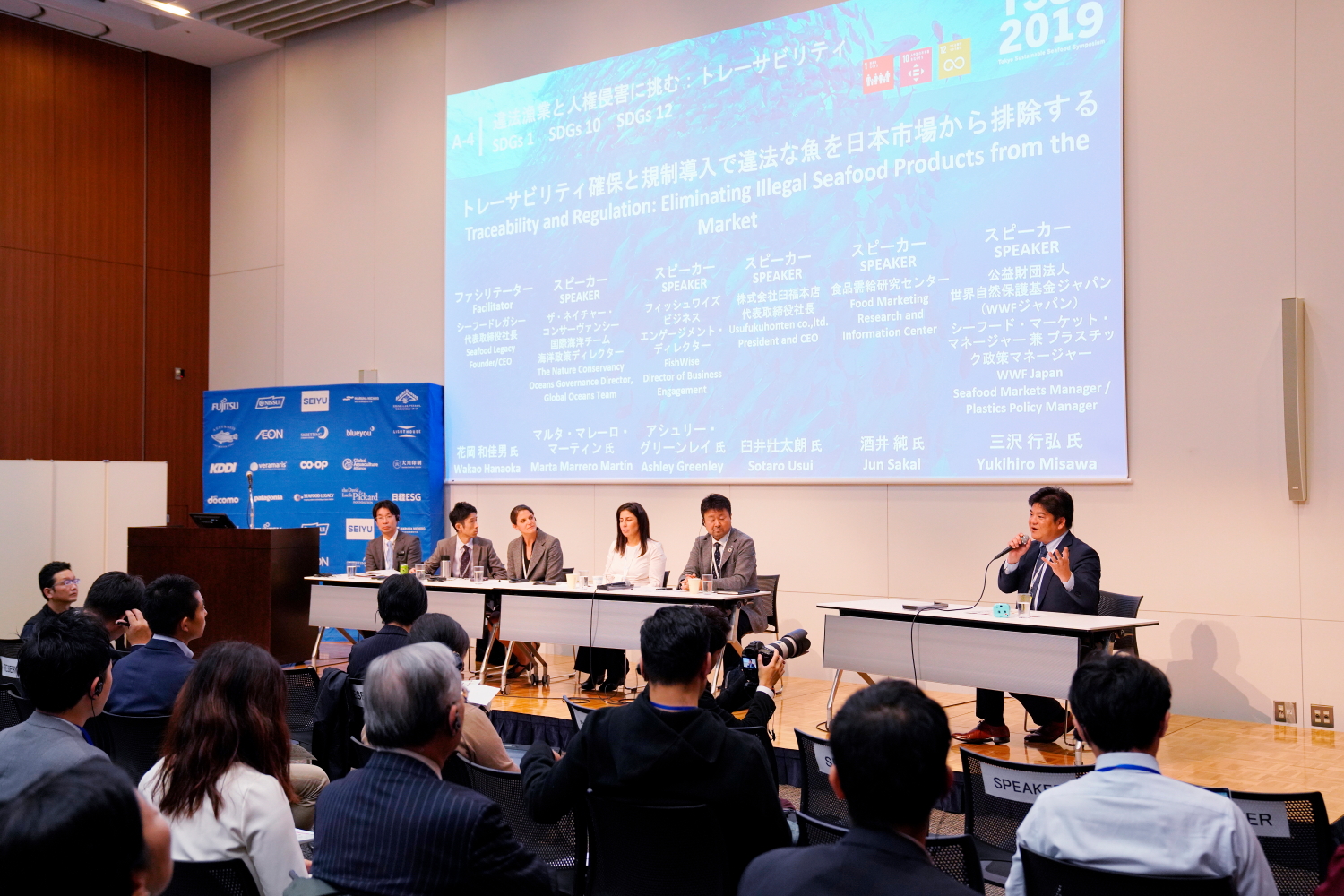P-2~5: Collaborating with the International Community to Better Use Our Oceans for the Next Generation
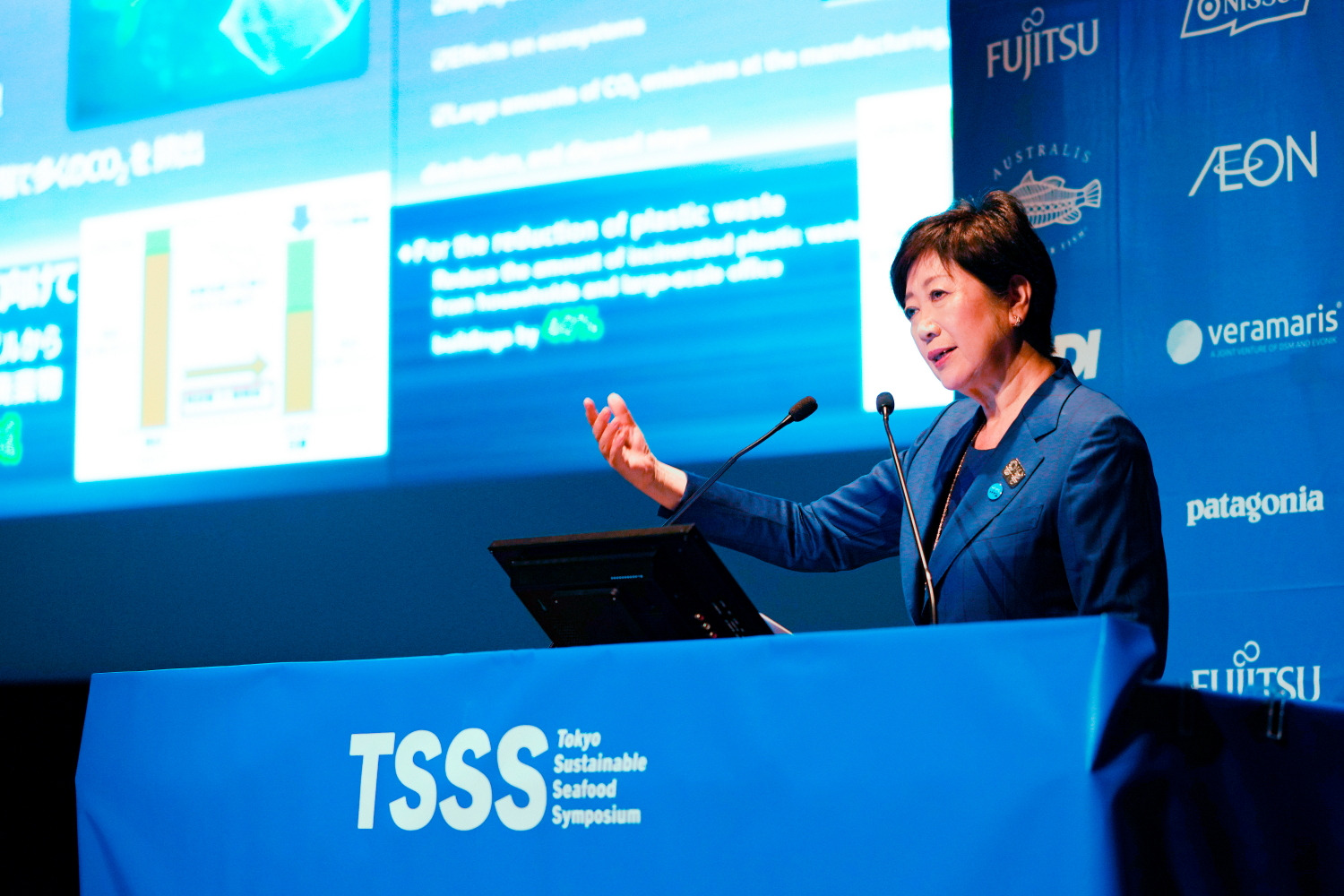
In this year’s keynote speeches, the Ministry of the Environment, the Ministry of Foreign Affairs, the Tokyo Metropolitan Government, and the Fisheries Agency gathered on stage to introduce their initiatives, which highlighted the importance of global and local effort to protect and improve the marine environment.
Promoting the Protection of the Marine Environment through International Cooperation to Meet Post Aichi Goals
Ministry of the Environment Vice-Minister of the Environment, Hiroshi Kamagata
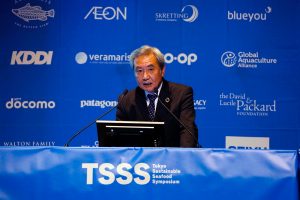
Mr. Kamagata introduced the international movements surrounding the marine environment, and the efforts being made to preserve marine biodiversity.
The IPBES Global Assessment Report stated that global plastic pollution has increased by ten times since 1980, and is affecting over 267 species. The issues surrounding the plastic pollution was widely discussed at this year’s G20 Osaka Summit, where the G20 “Osaka Blue Ocean Vision” as well as its work plan were announced.
The Ministry of the Environment announced the “Plastic Smart” campaign, which promotes smarter ways of handling plastics through reducing, reusing, and properly collecting the plastic wastes.
One of the 2020 Aichi Goals was to set 10% of the ocean as a marine sanctuary. The amended Natural Environment Conservation Act will take effect in April 2020, which will widen the area of the ocean floor that receives protection.
Mr. Kamagata finished by stating that, in order to fulfill the post 2020 goals, Japan needs to revisit the concept of the cohabitation of people and nature, and place greater importance on considering biodiversity in economic activities.
Plastic Waste and IUU Fishing Countermeasures as a Foreign Policy
Ministry of Foreign Affairs General Director for Global Issues, Tamaki Tsukada
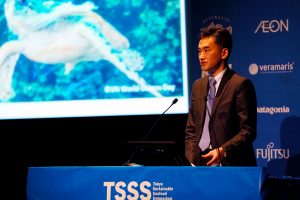
Mr. Tsukada from the Ministry of Foreign Affairs focused on the global effort to reduce ocean plastics and to combat IUU fishing. The issues surrounding the global ocean such as ocean plastics and IUU fishing extend beyond borders and require multinational collaborative efforts. Mr. Tsukada introduced efforts being made by the Japanese government from a foreign policy perspective.
One of the goals of the “Osaka Blue Ocean Vision” announced at the G20 Summit was to reduce additional pollution by plastic litters to zero by 2050. Mr. Tsukada highlighted that setting the deadline 2050 and having a clear goal were significant steps forward.
To achieve this vision, Japan has begun working on an international initiative called the MARINE INITIATIVE. It brings together waste management (MAnagement), the recovery of marine waste (Recovery), and innovation (INnovation), to empower developing nations (Empowerment). This initiative will expand internationally through bilateral ODAs, and the work of businesses, NGOs, and municipalities.
Mr. Tsukada also introduced the High Level Panel for A Sustainable Ocean Economy, which is led by Norway, joined by 14 other large Maritime nations, including Japan.
One of the issues the panel focuses on is IUU (illegal, unreported, and unregulated) fishing. Those nations are making efforts to block out all IUU fishing through the denial of entrance to ports, ship inspections, and acquiring robust traceability.
This initiative requires continuous collaborative efforts between politics and science and is expected to encourage future multi-vector foreign policy.
40% of Japan’s Water is in Tokyo For Sustainable Oceans and Industry
Governor of Tokyo, Yuriko Koike
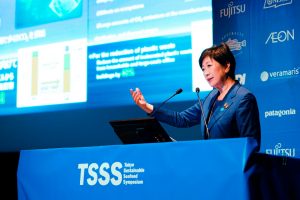
Governor Koike spoke regarding the fast-approaching Tokyo Olympics and Tokyo’s Olympics legacy.
The ocean surface temperature around Japan has increased by 1.2℃ in the last 100 years. This is 0.5℃ higher than the global average. Increased ocean temperature not only causes marine resource loss such as shore denudation and decrease in the fishing area, but It also causes abnormal weather such as including typhoons and large scale rain.
Another big problem is the pollution from plastic waste. Almost all marine debris comes from the plastic used in our everyday lives, and it needs to be stopped at its source. Tokyo has initiated a discussion with inland prefectures to develop countermeasures.
Additionally, to promote the sustainable use of marine resources, Tokyo is continuing to implement oceanographic surveys, fishing regulations, maintaining fishing areas, and utilizing unused resources. She closed by stating that the 2020 Tokyo Olympics is an opportunity to realize future perspectives and sustainable use of marine resources.
The First Fisheries Policy Reform in 70 Years: Revolutions in Japan’s Management of Fisheries
Fisheries Agency Director General of Resource Management, Takashi Koya
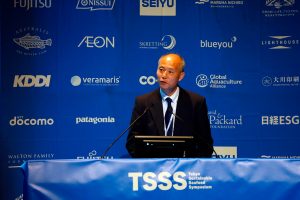
The last keynote speaker was Takashi Koya from the Fisheries Agency. Last year, the fisheries policy was reformed for the first time in 70 years; Mr. Koya discussed the significance of the policy reform as well as the implementation to undertake.
The biggest point of the policy reform was the change in harvest management. Until now, 40% of Japan’s fisheries were managed by the size and number of fishing boats as well as fishing methods. This management method was not effective in terms of recording the actual catch volume, which is essential information for resource management and recovery.
Currently, only 84 species are assessed for resource management purposes. The new policy requires 200 species to be assessed and managed by 2023. This means that 80% of all fish caught in Japan will be managed with proper scientific data.
Also, the new policy focuses on improving the quality of resource management and its related assessment. The new resource assessment will look at not only the historical trend of the past 20 years, but it will also look at the recovery potential of the stock. It will also incorporate the pressure from commercial fishing and make sure that the resource is not overfished. He highlighted that independent research institutions should conduct such resource assessments.
The new Fisheries Policy will take effect in December 2020. He stated that they will strive to develop a sustainable fishing industry by creating clear goals, strengthening their management by data, and improving and expanding resource assessments.
